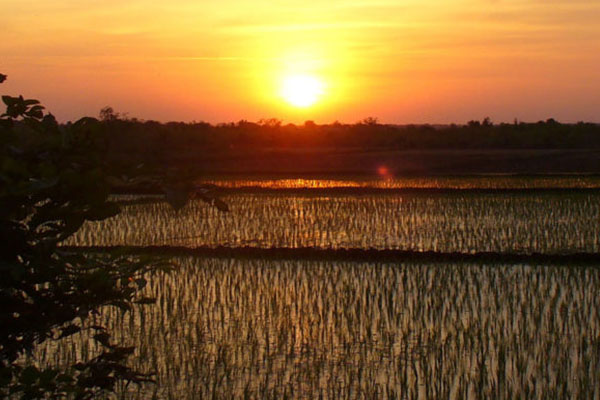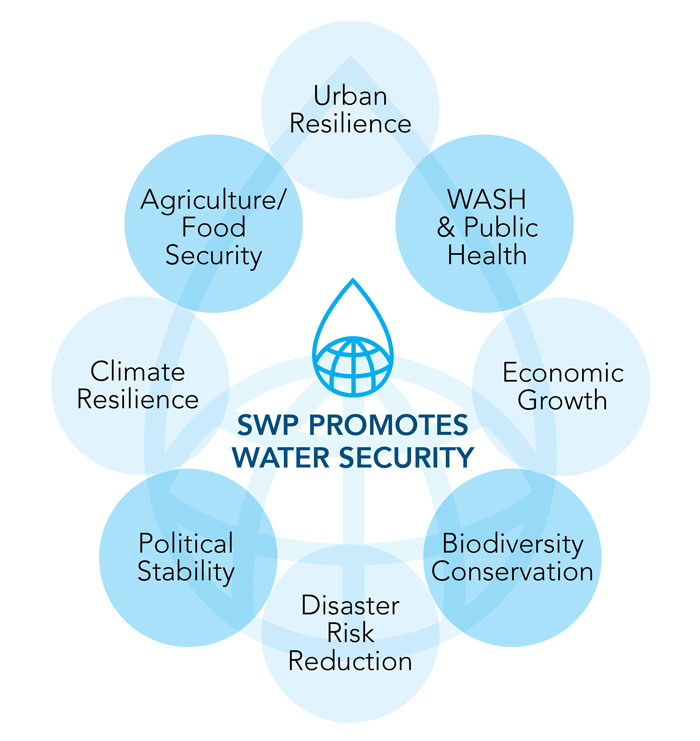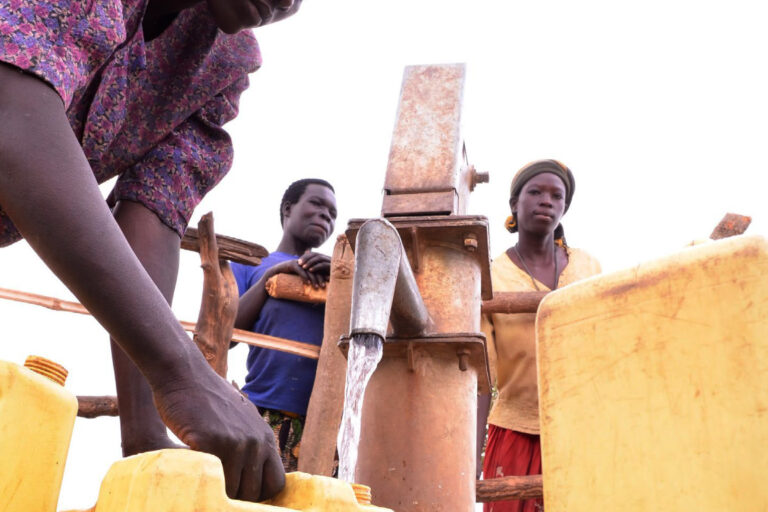
Bolstering WASH, Building Resilience
How water security can enhance the climate resilience of WASH activities.
Clean water keeps us alive by keeping us hydrated and clean. Water, Sanitation and Hygiene (WASH) projects aim to improve public health by allieviating poverty and boosting economic development. They do this by building or rehabilitating water and wastewater systems, and by promoting healthier sanitation and hygiene practices.
While WASH programs continue to save lives, they are increasingly sensitive to climate change. The Sustainable Water Partnership (SWP) can help USAID Missions and other implementers build climate resilience into their WASH activities through water security.

What is Climate Resilience?
Water resources face great pressure worldwide. Long-term trends such as population growth, urbanization and climate variability directly affect the availability, access and quality of water resources. Meanwhile, natural disasters or sociopolitical events can ruin lives, livelihoods and regional economies overnight. If serious measures are not taken, these long-term stressors will only continue to mount.
Resilience means that human and natural systems can anticipate, withstand, respond to, mitigate, adapt to and recover from shocks and stressors quickly and efficiently. Climate resilience promotes approaches and actions that will deliver benefits both now and in an uncertain climatic future, turning instability into opportunity.
How is Climate Change Impacting WASH?
Since the largest impact of climate variability and change is on the water cycle, extreme events and climate-related disasters are becoming the norm. Where past WASH programs provided immediate access to water, the communities of today (and tomorrow) will experience more complicated water challenges, such as the pollution or depletion of water resources. Addressing these compounding water challenges requires a holistic approach that looks at all water uses and cumulative effects of multiple water withdrawals.

Bolstering WASH with Water Security
SWP can help USAID missions and other implementers build climate resilience into current and future WASH projects with water security. The project’s Water Security Improvement (WSI) process empowers stakeholders in a specific geographic area to address water-related risks, shifting away from wasteful, polluting practices and conventional engineering approaches. This efficient, effective series of steps is designed to be repeated and expanded over time.

WASH projects can further ensure water security and climate resilience by:
- Using a “systems thinking” approach where causes (not just symptoms), impacts and externalities are identified and addressed.
- Engaging all water user groups (from women to industry), including the concerns of the marginalized at every step.
- Using community participation to elevate water users from beneficiaries to empowered actors.
- Considering the multiple users and uses of water (from agriculture to sanitation).
- Conducting assessment and safety planning of water quantity and quality.
- Employing watershed management, awareness-raising and institutional improvements to strengthen construction activities.
If development is to be sustainable, communities must plan, adapt and bounce back from the effects of climate change and variability. Without water security, WASH successes lack climate resilience. But if WASH professionals work in tandem with water security experts, we can build that resilience, both now and for the future.
This post was based in part on a presentation given by SWP’s Liz Kendall at the Water & Health Conference at the University of North Carolina.
Related Projects

